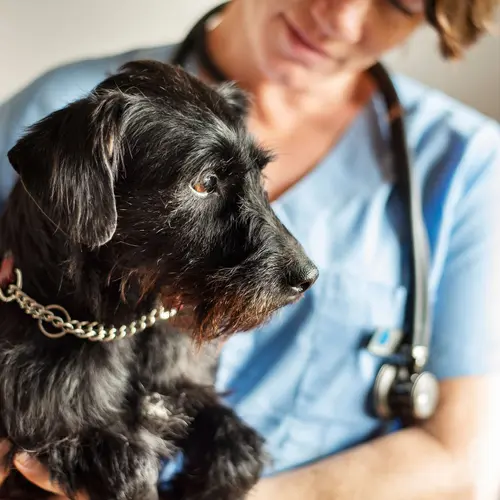You know you need veggies and fruits to keep your diet healthy. But does your dog?
Dogs are omnivores, which means they can eat meat and plants. Many commercial dog foods are made with vegetables and fruits along with meat and grains. These products are also made to include all the nutrients a dog needs to be healthy.
So even though your pooch doesn’t really need extra vegetables and fruits in their daily diet, they won’t hurt them, either. Some fresh and canned produce can be part of good doggie nutrition. You just need to know which ones to give.
Fruit and Veggie Treats
Many pet parents give produce as treats for their pups. Some can have extra nutritional benefits:
- Apples are an excellent source of vitamins A and C, which keep a dog’s skin and coat healthy. Apples are also low in fat and are a good source of fiber. But remember not to feed them the core or the seeds.
- Carrots, peas, green beans, sweet potatoes, and bananas are packed with important vitamins, along with potassium, which is good for a dog’s muscles, nerves, and kidneys. Their fibercan also help dogs stay regular.
- Oranges are a great source of vitamin C. Small dogs can have up to a third of a full-size orange, while a big pup can wolf down the whole thing. Just be sure to peel it and remove the seeds.
While it’s fine to give your dog these healthy foods, watch how much you dole out. Treats should make up 10% or less of your dog’s calories for the day.
Help for Overweight Dogs
If you have a dog who might be carrying some extra pounds, low-salt, low-sugar vegetables and fruits can be a good way to help them lose weight. For example, you can replace some of their dog food with green beans. This decreases calories consumed but keeps them full. But don’t start a new diet for your dog without talking to your veterinarian first. A sudden change can upset their digestion.
Your vet can tell you how to mix in produce to make the transition easier for your pup. A balanced diet is important no matter how much your dog weighs.
Veggies and Fruits Dogs Shouldn’t Have
- Grapes, raisins, and currants are toxic to dogs and can cause kidney failure in some.
- Onions, garlic, and chives can be harmful. They can cause blood problems for dogs, as well as diarrhea, stomach pain, and nausea, if your dog eats a lot of them.
- Mushrooms from the grocery store may be safe, but wild mushrooms are toxic for dogs. It can be tough to tell them apart. So it’s better to not take the risk.
Never give your dog corn cobs or fruit pits (like from peaches or avocados) -- they may get stuck in their throat or intestines.
A Vegetarian Dog?
A dog’s primary dietary need is meat, so it can be hard for them to be on a strict vegetarian diet. It takes a lot of preparation and planning to provide a dog or puppy the right nutritional balance it needs without meat. Many home-prepared vegetarian diets just don’t supply enough nutrients. If it’s important to you that your dog doesn’t eat meat, the best thing to do is talk to your veterinarian about ways to provide the right balance for them.

